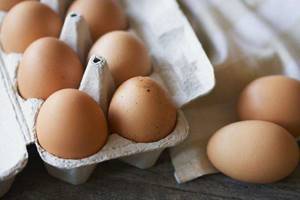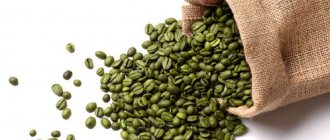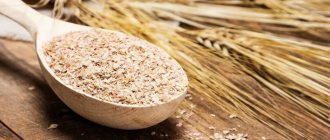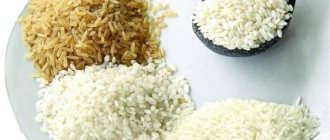Most people who are supporters of proper nutrition know firsthand how difficult it can be to restrain themselves from various goodies, especially at first, when the body is just rebuilding and getting used to eating new, healthy foods. The first couple of months are considered the most difficult, until the habit is developed.
However, a carefully thought-out diet of proper nutrition is the best method for maintaining good physical shape and well-being, as well as the key to losing weight. Once your personal diet is completely compiled, you will need to stick to it and make only minor adjustments, however, breakdowns happen even for experienced adherents of proper nutrition, because it is not without reason that they say: “The forbidden fruit is sweet.” This is why the topic of reducing appetite is so relevant. In this article, we will look at a list of foods that will not only benefit your health, but will also help you eat less and less often, all without grueling fasting and strict diets. We will try to figure out how to reduce appetite without harm to health, and what tactics to choose for beginners of proper nutrition in order to avoid breakdowns.
What reduces appetite and helps you lose weight: looking for sugar and flour substitutes
To overcome hunger once and for all, you need to understand what food makes us want to eat more. This:
- Products made from refined white flour
- Polished rice
- Cereals
- Sweets and sugar
What happens when we eat, for example, milk chocolate? First, insulin production begins, then the blood glucose level drops sharply. The result is an acute feeling of hunger and another breakdown. So sweets, like herbs, spices, and alcohol, will not help you lose weight - they will only make you eat more and more.
We recommend replacing unhealthy treats with healthy ones: sugar with stevia, maple syrup with dietary Jerusalem artichoke. Instead of buns, try amaranth bread - the perfect base for a light and satisfying snack. Replace polished rice with unprocessed rice, porridge made from cereals with milk - muesli or breakfasts made from wholemeal amaranth flour.
Health and slimness are achievable only with proper nutrition. So the first step on the path to losing weight should not be manic dieting, but rethinking your own eating habits and creating a balanced diet.
How to suppress appetite: tips for every day
- Simple water helps relieve hunger. But you need to know how to drink it correctly: 20-30 minutes before meals, without gas, always warm, not ice-cold.
- Another effective remedy that helps overcome the desire to empty the refrigerator is aromatic ginger tea. The recipe is simple: the root is grated and poured with boiling water (400 ml). The drink should sit for 10-15 minutes, after which you can add citrus fruits - lemon or orange. It will be both tastier and brighter. Ginger not only pacifies our empty stomach, but also speeds up metabolism and makes the organs of the gastrointestinal tract work harmoniously.
- The ideal morning breakfast is crispy amaranth balls with added cocoa or an invigorating salad. How to make it? We will need a juicy apple, half an orange or grapefruit (can be replaced with your favorite dried fruits), a couple of spoons of oatmeal, a handful of nuts, honey (1 teaspoon is enough) and light drinking yogurt. Combine all ingredients and mix. This is an excellent start to the day that will energize you and keep you from getting hungry on the way to work.
- What should be a lunch after which you are guaranteed not to want more? This is a soup made with clear chicken or vegetable broth. It should not be too rich and fatty. Another option is puree soup with toasted croutons.
- Do you overeat before bed so that you get up in the morning with a feeling of heaviness in your stomach? Your problem is the wrong dinner or lack thereof. Eating after 6 is possible and even necessary. At the same time, it is necessary to compose the menu more carefully, without giving yourself a “feast for the whole world,” but allowing only what will satisfy you, without putting on the sides in the form of new kilograms. A good option is lean meat (chicken, turkey, rabbit) or fish (cod, carp, hake) with vegetables - fresh, boiled or grilled.
How and with what can you reduce your appetite throughout the day and in the evening? After all, at work, we most often allow ourselves to eat on the go, absorb questionable semi-finished products, which leads to weight gain and digestive problems. Our advice is to try to take a step towards proper nutrition, starting small. For example, replacing sugar with stevioside, a natural sweetener that contains no calories and is therefore safe for your figure.
Afterwards, you need to reconsider your diet, excluding from it sweets and products made from white flour, smoked foods, hot and spicy spices (they also contribute to the fact that we constantly ask for more), everything fatty and fried. More vegetables and fruits, more water - all these are simple and effective rules that will help you slowly but surely get rid of the unremitting desire to eat everything.
Next, we will tell you what to leave on the plate so that your stomach does not require replenishment and does not remind you of itself every hour.
Tips for reducing appetite
To avoid overeating, use the tips below:
- eat in small pieces, chewing thoroughly, then you will definitely not miss the signal transmitted by the brain about satiety;
- eat breakfast properly. Your condition for the entire next day depends on breakfast;
- Drink a glass of water half an hour before meals. This will help dull hunger, and eat less food at lunch;
- Don't be distracted by extraneous matters. During dinner, you should not be distracted by gadgets, TV, or even conversations;
- Keep a snack item on hand or in the refrigerator. It could be any fruit or nuts;
- don't eat forcefully. If your stomach tells you to stop, don't eat the rest of the food on your plate.
Try to move more and lead an active lifestyle, because in addition to food, there are plenty of activities for the soul and body. The feeling of hunger will leave you naturally as soon as you switch to what you love.
Foods that reduce appetite and suppress hunger
- Seaweed
They are first on our list - precisely because of the large amount of essential coarse fiber (fiber). Algae are often included in diet products that promote weight loss. A good example is amaranth bread with the addition of dried kelp. They will help satisfy your hunger in between main meals and give you a feeling of fullness.

Seaweed is also good because it contains fucoxanthin, a source of carotenoids and fatty acids. So this is definitely a useful component that not only helps us eat less, but also saturates the body with many vital substances.
- Legumes
The list of foods that suppress appetite also includes peas, beans, and lentils. They have a low glycemic index and also contain complex carbohydrates, which take longer to digest, help avoid low blood sugar, and normalize the functioning of the central nervous system.

Include them in your diet - you will see that hunger will visit you less and less often, because beans contribute to long-term satiety and help you forget about trips to the refrigerator every half hour.
- Raspberries
Berries are a win-win option in dietary nutrition, a storehouse of vitamins and microelements for health and slimness. But we need fresh or frozen raspberries. It will give the desired effect - it will eliminate hunger.

The reason is all in the same fiber that is contained in scarlet berries. And vitamin C will help resist colds and strengthen the immune system.
- Pistachios
Everything is simple here - the more nuts we peel, the larger the mountain of husks remaining from them. And this is a kind of reminder - it's time to stop.

This product also contains complex carbohydrates that make you forget about hunger for a long time, “healthy” fats, and valuable B vitamins. So you shouldn’t neglect pistachios - they will be an excellent alternative to your usual snack. You can grind them in a blender and add mashed avocado pulp, a pinch of salt and a couple of drops of lemon juice - you get a delicious mousse.
- Chicken eggs

You shouldn't overeat on them - one or two eggs a day are more than enough to forget about the feeling of hunger. This is all because of the special effect on our body - they reduce the production of the hormone ghrelin. Its level rises before meals and falls after we are full.
- Jerusalem artichoke
“Earth pear” normalizes blood sugar levels, fills the stomach with dietary fiber and promotes quick satiety. It is useful in all forms - both raw and as an additive to healthy sweets - for example, jam.

In this list, we looked at the main foods that reduce appetite, and found that the remedy that really works for us is the right diet and self-control. And then we will talk about simple ways to regain your vigor and convince your stomach that there is no need to overeat.
Appetite 5 plus
Your child will soon go to first grade, and you just need to properly prepare for this. First of all, to help a growing and not yet very strong body cope with the enormous mental and physical work that has fallen on it. Let's talk about nutrition, because for loving parents there is no more gratifying sight than the sight of a child eating.
What to do with your appetite?
If it's time to eat and the child is not hungry, you should not force him to eat. Sages of all times and peoples prefer not to eat when they have no appetite.
Lack of appetite can be explained by various reasons. For example, too much and high-calorie food at the last meal. Or the child, for some reason, spent several hours with little mobility (rode with you in a car or on a bus; looked at pictures in a book that interested him). Or the child got sick. Or the child simply doesn’t like this dish. Don't insist on your opinion, wait until your appetite comes. In the meantime, think about the reasons for your lack of appetite.
Know how to listen to your child’s wishes and desires. You will act wisely if every time before eating you ask your baby how much of what food to put in him. If you often force your child to eat, regardless of whether he has an appetite or not, you can ensure that the child develops a stable negative reflex for food. The baby's mood will deteriorate every time the clock indicates meal time. You can completely ruin your relationship with your child - he will be capricious, nervous, angry, and it may even lead to mutual insults and punishment.
Appetite increases if the child is given 1-2 multivitamin tablets half an hour before meals. A simple picnic will also help you get out of a difficult situation with honor. Children eat in nature with great pleasure: firstly, because it is somewhat unusual for them; secondly, in the fresh air your appetite quickly works up.
Too much appetite is also a common occurrence
Your child eats and eats, and you can’t get enough of him. With such a good appetite, the child quickly gains weight and becomes plump. There is nothing good about this. Overweight children are less mobile. Their heart and blood vessels are under increased stress. Under the influence of heavy weight, curvature of the spine and flat feet can develop. If you do not take any measures to reduce your child’s weight, over time (when your child becomes an adult), he may develop a whole bunch of diseases, including: hypertension, cholelithiasis, kidney stones, atherosclerosis, diabetes mellitus, etc.
Fat baby
What to do if your child is overweight? Recently, it has been reliably established that excess body weight accumulated at an early age predisposes to the development of obesity. The number of fat cells that is formed in the body during the first year then practically does not decrease, it can only increase.
If you notice that your child has a tendency to be overweight (heredity also plays a significant role here), try to seek advice from your local pediatrician or an endocrinologist. A specialist will help you identify the cause of the resulting fullness. Under no circumstances should you try diets on your child that were recommended to you by friends or neighbors. Some of these diets may be quack ones, and you will harm your baby.
Review your regular menu: is there too much fat in it; Don't you eat too much vermicelli, pasta, noodles, and cereals?
Don't give your child too much sweets. An abundance of sweets is a big burden on the pancreas. To break down sugar, iron must produce a lot of insulin. Time passes, and the pancreas of the sweet tooth begins to malfunction as it gets tired and wears out. The case may end in diabetes. If the daily sugar intake for an adult is approximately 90 g, then a 6-7 year old child needs 30 g of sugar per day. You would be wise to allow your child to eat no more than one piece of candy per day. When there is an excess of carbohydrates in the body, these carbohydrates undergo a series of chemical transformations and begin to be stored as fat.
Some practical recommendations for children prone to obesity
Children who are prone to obesity are not recommended to eat infrequently (3-4 times). It is recommended to suppress appetite. This suppression is facilitated by frequent meals 6-7 times a day, but in small portions.
A child prone to obesity should not rush while eating.
Do not include fatty meats in your diet.
A child who suffers from obesity (and they do suffer from obesity) should eat more foods of plant origin - raw vegetables and fruits.
For children prone to obesity, it is recommended to replace regular foods with so-called dietary foods (which have a reduced calorie value), low-fat foods.
Don't get carried away with ice cream.
How to help your brain?
Soybeans, low-fat cottage cheese, cod, liver, peas, oatmeal, rice, eggs. They contain a lot of choline, a vitamin-like substance (a natural neurotransmitter) that causes nerve cells to conduct nerve impulses through themselves. It is this function that makes our brain the thinking, remembering and reproducing “device” of our body. The real storehouse of choline is the yolk of the egg: it helps the barely hatched chick to instantly and firmly remember the mother bird in order to relentlessly follow her, otherwise the chick will not survive. An omelette made from one egg for breakfast and a small (50 g) piece of beef for lunch will fully meet the daily requirement of a primary school student for choline.
Brain, heart, butter, cheese, pork and lard, fish, milk - are vital for the growing and rapidly developing brain of a first-grader, because all these foods contain cholesterol. In recent years, there has been a lot of talk about the dangers of cholesterol, and many people already have the impression that cholesterol is a real poison for our body. But that's not true! The importance of cholesterol can be judged by one fact - the body of a person weighing 70 kg contains 230 g of this substance. A good portion of this amount is found in the nervous system, in particular in the brain. We can say that the human brain consists entirely of cholesterol (15%) and water (80%). Therefore, remember, it is not cholesterol itself that is harmful, but its excess.
Poultry, lean beef, hard cheeses, shrimp and crabs. The latter contain a lot of zinc, which is necessary for the normal functioning of the nervous system and directly affects operational memory and the ability to reproduce what has been learned. For the first time, first-graders are faced with the need to quickly remember learned material, so it is especially important for them that their memory provides information reliably and on demand, like a good computer.
What does a young brain need?
| Substances | Action | Sources |
| Amino acids | Increases performance | Dairy products, nuts, legumes |
| Complex carbohydrates | Give energy | Whole grain bread, pasta, potatoes |
| Vitamins (especially A, C, B, E) | Act as antioxidants, strengthen the nervous and immune systems, improve blood circulation | Fruits, vegetables, yeast, vegetable oils |
| Minerals, trace elements (calcium, magnesium, potassium, iron, boron) | Control metabolic processes, participate in hematopoiesis | Vegetables, fruits, dairy products, nuts, seeds |
How to preserve vision?
Fish oil, red pepper, carrots, sorrel, green onions, red tomatoes, apricots, apples. All these foods contain vitamin A. A lack of this vitamin can lead to myopia. The visual apparatus of a first-grader experiences colossal overload. By placing bright green or red fruits on the table, you can protect your child's eyesight.
Remember that vitamin A belongs to the group of so-called fat-soluble vitamins. Therefore, it is absorbed better and faster if vegetables containing this vitamin are ingested in combination with something fatty, such as vegetable oil or sour cream.
Where to get strength?
Sugar, rice, semolina and buckwheat, potatoes, grapes, watermelon, cabbage. These are the main suppliers of carbohydrates, which in turn are the main sources of energy. It is thanks to carbohydrates that the legs will run faster, the arms will squeeze stronger, and the back muscles will reliably support the spine in the desired position.
Soy, cheeses, fish, peas, beans, bread, milk, cottage cheese. They contain a large amount of proteins. For a child's growing body, proteins are needed like air. They are an indispensable part of nutrition. Proteins are of plant and animal origin. It is advisable to have both in a child’s diet. Protein is needed by muscles for their growth. And in general, this is exactly the building material from which all the cells of our body are created.
About the benefits of snacks
The child must be given something tasty to school: an apple, a banana, a sandwich, curd cheese, crispbread. A growing body cannot tolerate long breaks between meals. Many children experience a sharp drop in blood sugar levels. They feel weak, headache, dizzy. No educational wisdom reaches a child in this state. If you are also nervous on an empty stomach, then the ground for the development of gastritis and even stomach ulcers can be considered completely prepared. Light snacks during breaks are easy on the stomach and help maintain normal blood sugar levels.
Take note
Don't forget about product compatibility. After all, only compatibility ensures rapid digestion of food and its complete absorption. Dairy and meat products are most favorably combined with cereals and cereals.
Monitor the temperature of hot foods. The optimal temperature is 60 C. Food with a temperature above 65-70 C can cause burns to the mucous membrane of the esophagus and stomach, and increase the likelihood of gastritis (inflammation of the gastric mucosa).
Try not to give natural coffee to children 6-7 years old. Caffeine has a stimulating effect on the body: it dilates blood vessels in the brain, increases muscle tone, and increases the strength of heart contractions. This is a big load for a child’s heart, and if we take into account that the heart in children is already delayed in development - as if it is being pulled along by a rapidly growing organism, then we can say that natural coffee is generally poison for a child. A wonderful drink is tea. But since it, like coffee, contains caffeine, it should not be given too often and too strong. It is better to replace coffee and tea with fruit juices and compote.
Proper nutrition is the basis of health!
How to forget about hunger
- The first option is to give yourself smaller portions. Nutritionists advise eating little and often. This way we get the necessary nutrients and don’t have time to want more.
- To avoid the temptation to overdo it, don't put food on a deep plate. Larger and larger dishes make you think about eating again. And on a small plate, even a modest portion will seem large. This optical illusion will help you outsmart yourself and eat less.
- Spices, hot sauces, and herbs only whet your appetite and promote increased production of gastric juice. Use light dressings instead - they will help highlight the taste of the dish.
- Less salt and pepper is another law that needs to be remembered by those who want to know the most effective remedies and methods for reducing appetite.
- Monitor how you eat and draw conclusions. You should not swallow food without properly chewing it - this slows down the absorption of nutrients and does not let the body understand that it has received sufficient nutrition for normal functioning. To prevent hunger from haunting you all day, eat slowly, chewing foods thoroughly - at least 20 minutes.
- Train yourself to put fruits and vegetables in a visible place. This way you will gradually switch to healthy snacks. These are the thoughts that such “advertising” of healthy eating evokes: if I really want to lose weight, but I’m hungry, I need to choose something that completely suppresses my appetite - high-fiber foods that look so tempting. Try to make your snack as attractive and colorful as possible. For example, place an orange orange, a red apple and a green pear next to each other.

- Stop having breakfast, lunch and dinner in front of the TV or computer - so you yourself don’t notice how you allow yourself more than necessary. Train yourself to eat at the table in the kitchen - and nowhere else.
- If you feel like you're about to break down, and you're still far from a full-fledged snack, allow yourself a healthy sweet - for example, diet candy with Jerusalem artichoke.
- If you don't want to make soup for lunch, replace it with a vegetable salad - it contains a lot of coarse fibers that digest slowly and contribute to long-term satiety. You can add beans or pistachios to it - they perfectly complement the main ingredients and transform the usual dish.
- Are you constantly overeating? Then switch to a five-a-day diet. One condition is mandatory - small portions, light and healthy food.
We have already learned what reduces appetite for weight loss, and figured out what products and tricks help in the fight against hunger. Don’t forget: our diet must be correct – complete. If we don't have enough proteins, fats, carbohydrates or vitamins, we don't get enough energy to maintain mental and physical activity throughout the day, we are doomed to constantly overeating, fruitless attempts to get enough. Our main advice is this: eat healthy and watch what and how you eat. Then you won't have to cheat on an empty stomach.
How to use herbs that reduce appetite
The most popular for suppressing appetite are herbal infusions, which are taken according to a certain scheme, as well as herbal teas. You can purchase any herbal tea at a pharmacy. The most common, simple and universal way to prepare an infusion for weight loss is to bring it to a boil and leave for half an hour, and then strain. Drink the infusion 2-3 times a day, one glass, usually before meals. Regardless of recommendations, you must follow the instructions on the package.











